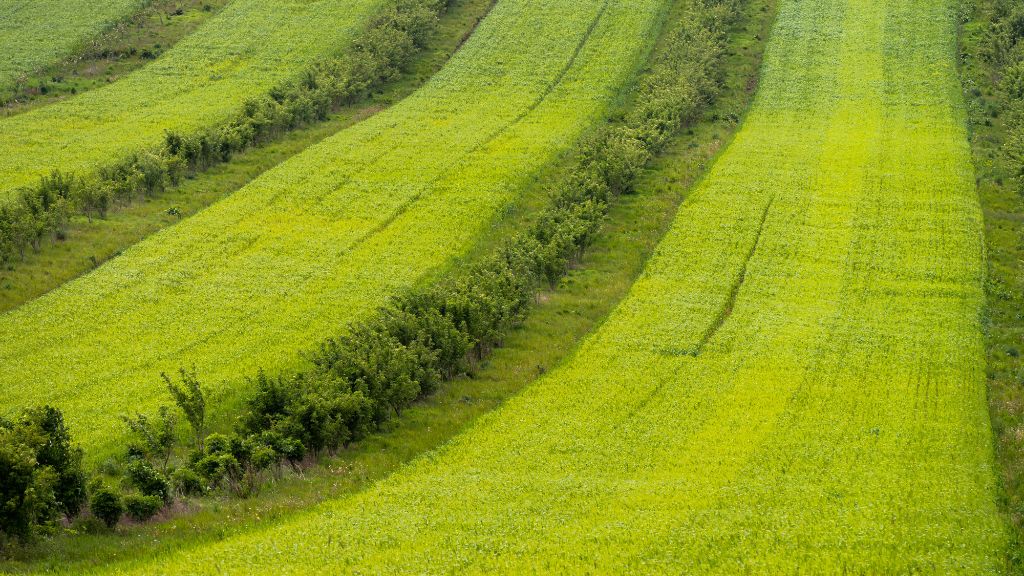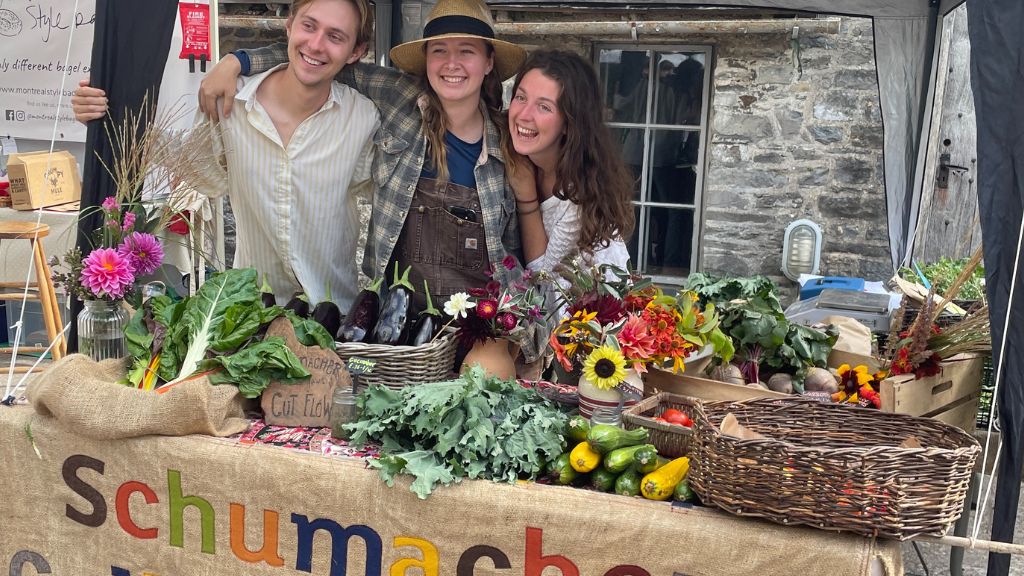Government’s food strategy maintaining the status quo – but at what cost?
The government’s much-anticipated food strategy was an opportunity to address the interwoven crises of climate and cost of living that are upon us. It was a chance to right our course and take a lead not only on food equity, but on environmental degradation and the health of both human and more-than-human communities.

Broadlears agroforestry field on the Dartingnton estate, with Luscombe Drinks’ elder tree and Old Parsonage Farm’s heritage wheat crop in between. Photo credit: Josh Pratt
But the recommendations from their own food tsar, Henry Dimbleby – expanding free school meals, improving welfare and environmental standards in farming, and reducing the amount of meat we consume as a society – were largely ignored or watered down, in favour of maintaining the status quo.
Most of the strategy’s articulation of net-zero targets, biodiversity and climate-resilient agricultural practice has been postponed until a future land use framework not planned for publication until 2023. This will apparently set out how they will ‘feed our nation today but also protect it for tomorrow’, but it feels more like kicking the issue into the long grass.
Let us be clear: we must act and act now. There can be no delay to identifying specific, key leverage points where we can make substantial change to address the broad recommendations in the strategy.
We need a drastic pivot in approach: tangible action that emphasises authentically regenerative practices underscoring soil health, climate resilience and a holistic understanding of agroecological and agroforestry processes that is essential to shifting our food systems paradigm.
There was a missed opportunity to provide detail and focus on developing regenerative practices, which are mentioned in passing as providing ‘more sustainable production of traditional protein sources’ with no indication of practical implementation. There was the suggestion that ‘sustainable sources of protein do not have to … displace traditional sectors’. There was the undue emphasis on ‘boost[ing] production’ in an already unsustainable seafood sector. And let’s not overlook the dubious mention of ‘non-traditional livestock sectors’.
These all serve predominantly to undermine any effort to curb meat production, consumption and related climate and land-use impacts with any meaningful or whole-systems approach.
For nearly 100 years, Dartington has been a centre for innovation, experimentation and forward-thinking initiatives in farming, forestry and food systems. In 2010, we undertook a comprehensive land use review of the entire estate, which led to a number of new initiatives in agroecological approaches to farming and conservation and the beginnings of a thriving biodiverse environment.
Today, we work with or alongside more than 20 land-based enterprises, with an evolving focus on regenerative living and learning, as well as our own small-scale, experimental agroforestry growing spaces at Schumacher College.
Alongside our long-running six-month sustainable horticulture residency, we recently launched one of the only master’s degrees in the country to look at Regenerative Food, Farming and Enterprise, and a BSc in the same subject will see a cohort of undergraduate students joining our regenerative community in September. The point is that, through our active learning programmes, we now have a collective of people with real specialism in this area, building on the experimental projects and incubator schemes that we have recently initiated here, and we are now looking at ways to share this learning more broadly.
For exponents of regenerative approaches like us, the maintenance of the status quo is simply not enough. For a strategy to effect real change in the food system, it needs to provide new, proactive support – including financial packages – to help traditional farmers and smaller-scale food producers take the economic and cultural leap towards regenerative, nature-positive practices now.
Sustainability is only good if what we are sustaining is in itself positive for all concerned. The government’s food strategy acknowledges the negative environmental impact of farming currently – we need that impact itself to shift towards being nature positive, and programmes such as ours offer training on how to do this without necessarily reducing yields.

For more in depth opinion and discussion on this topic read a recent blog by our Regnerative Farming programme lead, Dr Nathan Einbinder, with his comments on how transforming the food system is no longer optional.
To find out more about our food, farming and horticulture programmes and to apply, click the links below.
